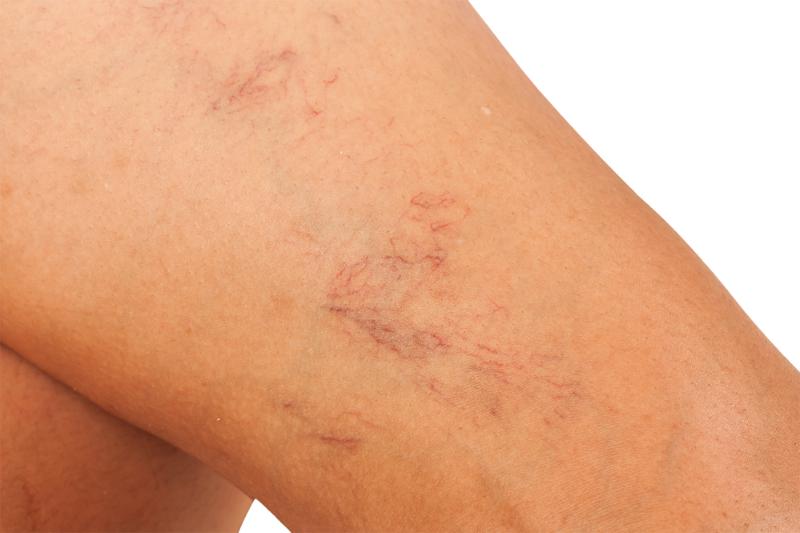Varicose veins can be extremely uncomfortable, causing both pain and embarrassment. However, vein ablation, as performed by Cardiac Associates of North Jersey in Oakland NJ, can eliminate varicose veins and the complications that come with them. While there are other treatments for varicose veins, this one offers numerous benefits over others.
No Surgery Needed
The primary benefit of this treatment for varicose veins is that you will not undergo a surgical procedure. A small incision that won’t even require stitches is made at the treatment site, into which a thin catheter is inserted into the targeted vein. A radiofrequency or laser fiber is threaded through the catheter and the energy of the laser or radiofrequency is aimed at the vein, causing it to cauterize and close. Eventually, scar tissue replaces the vein, and symptoms disappear.
Effective
This varicose vein treatment is almost 100% effective, which is a huge improvement over traditional surgical solutions. Radiofrequency ablation is more effective than laser ablation, but both offer superior results compared with surgical procedures. At times, there may be some branch veins that will need additional treatment, but there are very few cases where the vein that undergoes ablation does not close entirely. Additionally, patients almost always experience symptom relief from varicose veins following this treatment.
Within 12 months of treatment, most veins that have undergone ablation have been absorbed by the body and only scar tissue remains. Even with an ultrasound, a physician will have difficulty finding a vein that has been cauterized through ablation. This also means that these veins will no longer be causing appearance or pain problems for you. Moreover, your body will have re-routed the blood that used to go through these veins through other veins without any issues at all.
Minimally Invasive
Since there is no surgical incision required, you don’t have to undergo general anesthesia, making ablation far safer and less invasive than traditional surgical procedures. You won’t experience any scarring because there’s no large incision. The small incision into which the catheter is placed is superficial and will heal quickly. Additionally, you won’t have to be admitted to a hospital to have this treatment done, since only local anesthesia is used to numb the treatment area.
Quick Recovery Time
You are able to return to your daily activities immediately following ablation treatment. With laser treatment, you’ll have to limit physical exertion, but in most cases, you’ll have few restrictions. With radiofrequency treatment, you will have no restrictions at all. The entire treatment will take about an hour, which means you don’t have to reschedule your entire day or week as you recover from surgery. You’ll have no pain or other side effects, either.
Your provider may recommend that you wear compression stockings for up to 14 days following the treatment, which simply helps your legs heal faster because they increase the circulation of blood in the area. You’ll also need a follow-up ultrasound about a week after your treatment to ensure that the vein was cauterized and that your legs are healing properly. Ablation complications are extremely rare, but your provider will still want to monitor your progress.
Less Expensive
Even if the actual ablation treatment costs more than traditional varicose vein treatments, you’ll still find that ablation will save you money overall. This is because you won’t have a hospital and general anesthesia bill, both of which are required if you undergo a major surgical procedure. Instead, you’ll only have the bill for the treatment and local anesthesia, which will be much less expensive than general anesthesia. Plus, there will be no expensive aftercare required either.
Candidates for ablation of the veins will have large varicose veins that are causing symptoms that are interfering with their daily lives. Additionally, people who have an incompetent saphenous vein are also ideal candidates for this treatment. The saphenous vein is the largest vein in the body that runs from the foot to the femoral vein in the thigh. This vein is similar to the appendix in that if it is not working properly, the body does not need it.
Those who have symptomatic varicose veins may experience burning, cramping, swelling, and itching around the veins in their lower legs. They may also have an achy or throbbing feeling in their legs, or feel like their legs are heavy. In terms of appearance, varicose veins are often dark blue or purple in color, and they may bulge or look like thick ropes just under the skin. In the most severe of cases, the veins may also bleed.
Not everyone develops varicose veins, but certain risk factors increase the odds that you may have to undergo ablation for this condition. These risk factors include the following:
- Standing for long periods of time
- Being over the age of 50
- Being pregnant
- Going through menopause
- Being obese
- Having a family history of varicose veins


